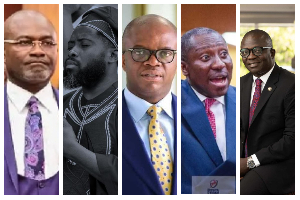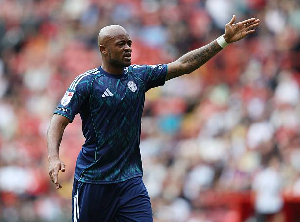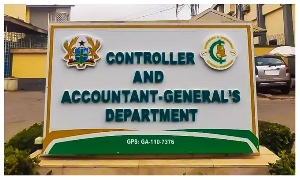Come November 2012, Ghanaians will go to the polls to elect a president and members of parliament – a constitutionally mandated quadrennial ritual. Ghanaians will emerge out of this election to witness either the consolidation of, thus far, one of Africa’s most liberal democratic nation-states, or the disintegration of our beloved country. It is not farfetched for one to discern both, given events in Ivory Coast and before that – Kenya and Zimbabwe. The year 2012 could be the biggest test yet of the depth of Ghana’s democratic maturity and liberal pluralism. Ghana’s democracy is in the amateurish stage and evolving, albeit in the midst of contentious rivalry, mostly along ethnic/tribal lines, between the two main political parties - the ruling NDC and the opposition NPP.
In the past year or so there have been documented signs and missteps on both sides of the political divide that give credence for peace loving Ghanaians to be concerned. While we have enjoyed greater rights and freedoms in the past two decades, the process of free speech is still evolving. In recent times freedom of speech has been facing enormous strain, arising out of an increasing polarization of the politics of Ghana and irresponsible journalism in certain quarters. The rate at which freedom of speech is being abused lately is alarming, and clearly does not bode well for the future of our country. The politics of insults, name calling and demonization of opponents have risen to vulgar proportions. What does this say about the maturity of our politicians if those who are asking us to vote them into power are completely devoid of the sense of decency, decorum and protocol? To make things worse, some in the media houses and journalists who are not only supposed to be neutral, but also present a voice of reason for us to make sense of the muddy waters of political games and manoeuvring, have become paid agents and tools for the political parties.
We have had individuals publicly promise violence if the outcome of the 2012 election does not meet with their expectations. How can an individual threaten violence and the disruption of public peace and get away with it? Clearly this is happening because the ruling government’s own officials are complicit in this sort of behaviour – particularly when they were in opposition, so they have lost the moral high ground to enforce public discipline, in the face of abominable public utterances.
We Ghanaians should not delude ourselves that what happened (is happening) in Ivory Coast or even Rwanda cannot happen in our country. According to the Commissioner of the Commission on Human Rights and Administrative Justice, Mr. Emile Short: “violence that characterised the bye-elections at Atiwa, Chireponi and Akwatia constituencies give much concern for Ghanaians to worry because what happened in Rwanda a decade ago could be replicated in Ghana.” It was reported that unauthorized roadblocks were mounted by vigilante groups to check the identity of people entering the constituency. What can be more dangerous than that, who is to say that this form of unauthorized exercise will not spread to other districts and constituencies in future, or worse still, be used to target specific ethnic or tribal groups? It is strange that our politicians do not see that the use of Macho Men by one party and Vigilantes by the other at or around polling stations on Election Day can be extremely toxic.
Ghana like most, if not all, African countries is not a homogenous society. We all know that boundaries of African states, as we know them today, emerged as a result of colonial powers forcing many different ethnic/tribal people, some of who distrust each other and may have even gone to war in the past, to cohabit in artificial nations. It can be a lot easy for some of these artificial nations to break apart along tribal or ethnic lines than most of us envisage. We have seen former Yugoslavia fall apart into small nation states, Ivory Coast has been divided into two, and is still reeling with the terrible consequences of division. Imagine a scenario where the French, English and the German are to cohabit in one country, we can expect nothing less than an explosive war. From that perspective we Ghanaians and other African countries, which have not seen major conflicts, have done very well, as we have demonstrated a greater degree of tolerance and respect for diversity. These are the values we want to hold onto, and pass on to future generations of Ghanaians.
We want to continue to have a unified Ghana that is democratic and liberal enough to allow individuals maximum freedom to do whatever they want, as long as their actions do not harm others. Meanwhile the government of Ghana must not only promise individual rights and freedoms, but must act to preserve them by intervening where groups form vigilantes that threatens the peace and the unity of the country. Individuals who advocate or threaten political violence (now or in the future) must be charged and prosecuted irrespective of party affiliation. Legislation must be passed to ban the use of “Macho Men” at polling stations. In this regard the ruling government must provide leadership and set a good example. If the above measures are not put in place we could be heading into the 2012 elections at the heels of a hugely acrimonious political climate, which could turn out to be very explosive. Party leaders, supporters and the so called “Foot Soldiers” must all stop the used of inflammatory language to gain cheap political points. Let us do what it takes to keep our country together. Free speech does not mean one can say things that could threaten and/or offend other individuals or groups. Those who make political speeches must do so responsibly.
Written by: Yaw Sefa Wiredu
Emai: yaw_ben@yahoo.com
Opinions of Thursday, 20 January 2011
Columnist: Wiredu, Yaw Sefa














